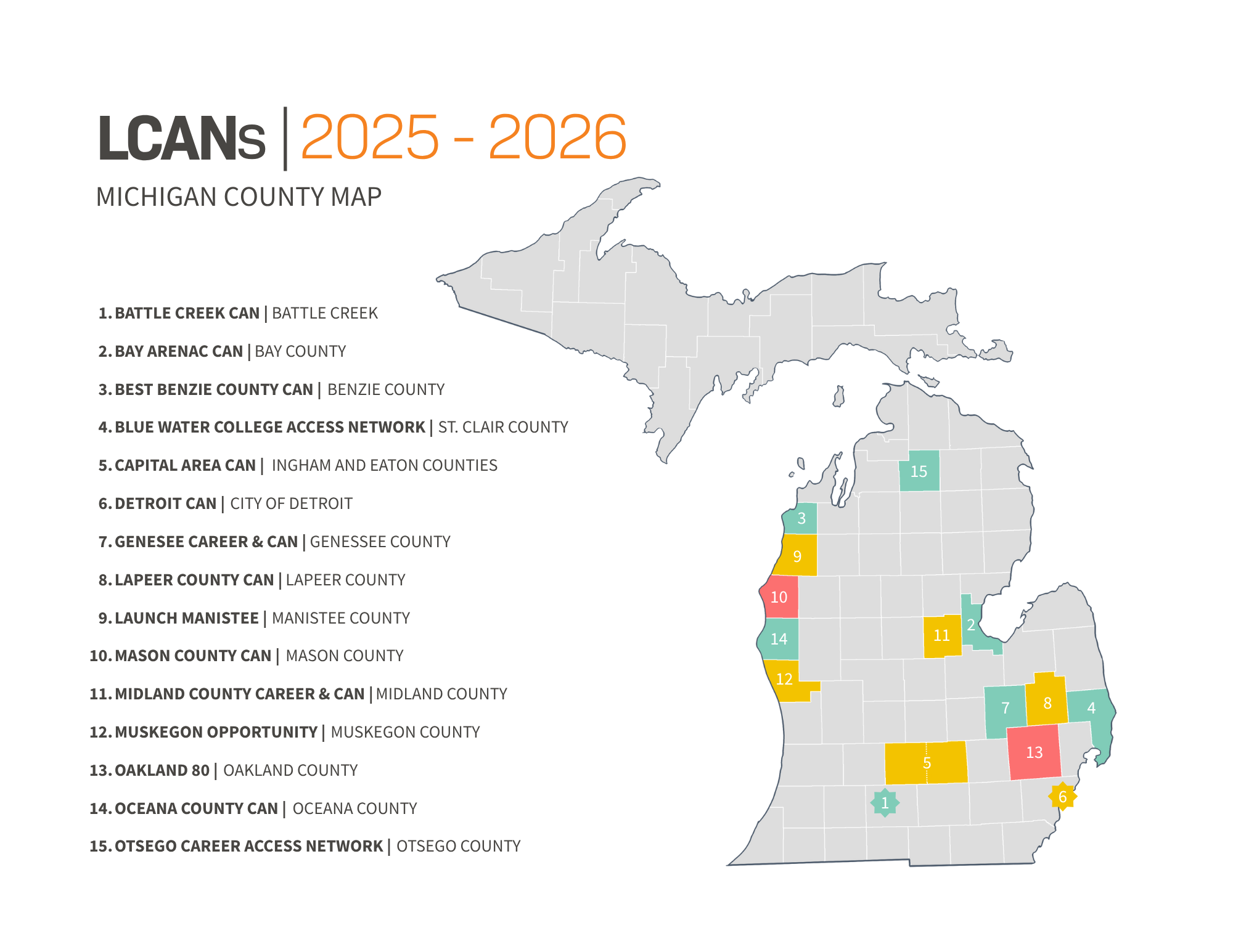Defining a Local College Access Network
Local College Access Networks (LCANs) are community-based college access alliances supported by a team of community and education leaders representing K-12, higher education, the nonprofit sector, government, business, and philanthropy. These coalitions are committed to building a college-going culture and dramatically increasing college readiness, participation, and completion rates within their community. LCANs coordinate and expand programs, services and resources that lower barriers preventing students from pursuing postsecondary educational opportunities. MCAN serves as the primary support organization to LCANs by providing technical assistance and grant opportunities.
LCANs organize community leaders around a singular vision: Increase the community’s postsecondary educational attainment level in order to lay the foundation for a vibrant economy, healthy community, and strong workforce equipped to compete in a 21st century global economy. An LCAN sets goals focused on student successes, establishes a system of data gathering and analysis, reports results, and holds partners accountable for performance. It is important to note a Local College Access Network is not a new program of the community or of one particular organization within the network. LCANs primarily coordinate and mobilize college access efforts rather than provide direct services to students and families.
If you want to know more about LCAN efforts in your community or the possibility of developing one, contact Dominique Devereaux, director of community mobilization strategy.

LCAN Implementation Guidebook
Charting the Course Second Edition
Since Charting the Course was first published in 2013, Michigan College Access Network has fine-tuned the process of how to establish a Local College Access Network. This second edition of Charting the Course incorporates the lessons learned since then. These lessons come from working to build LCANs in partnership with more than 50 communities from throughout Michigan, and multiple communities from across the country.
Charting the Course Second Edition is organized into three parts:
- Part I addresses the larger theory of the five conditions of collective impact within the context of college access.
- Part II focuses on the recommended chronological and procedural steps for successfully creating a Local College Access Network.
- Part III contains appendices of sample documents that are in use by LCANs, and templates developed or adapted by MCAN to assist communities in executing and embedding the strategies outlined in Parts I and II.
Published in 2016, MCAN's Collective Impact Benchmarks are designed as a supplement to Charting the Course Second Edition.
In order to better serve Local College Access Networks, MCAN has designed a set of Benchmarks using the Collective Impact framework as described in Charting the Course Second Edition. These Benchmarks can be used by communities as they build an LCAN, as well as by existing LCANs developing through the Collective Impact framework.
Videos
We encourage our Local College Access Networks to utilize the following videos in their communities.
Video 1: Addresses the urgency for a college access strategy in Michigan.
Video 2: Hear from community leaders about the development of LCANs and their value to communities.